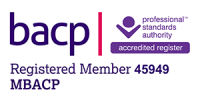Panic attacks are all too familiar these days with many people experiencing extreme anxiety or panic at some point in their lives
It’s a much mis-used description – panic attack. Sometimes people claim to have them when they simply feel a bit nervous or rushed but anyone who has ever experienced one will know what the feeling really means. Panic attacks can be extremely frightening. They can make you feel out of control, struggling for breath, nauseous, sweaty and terrified that you are having a heart attack or breakdown. At the worst extreme, they can create a sense of detachment, almost as if you are having an out-of-body experience. They can last a few minutes, or half an hour, can strike anywhere at any time whether you are alone or on a crowded train. In rare cases panic attacks can escalate into panic disorder, where the feeling of being overwhelmed lasts for days, weeks or months.
One Therapy therapist Simone Actilio explains that panic attacks are actually very common – one in three of us will experience them – yet often sufferers may not discuss them because they fear it carries some sort of stigma.
Panic attacks are frightening but they always pass.
But the reassuring truth is that a panic attack is not physically dangerous, rather it is your body’s normal physiological response to anxiety, to any form of stress, fear or excitement – but magnified.
Simone says, ‘A panic attack is a physical manifestation of an unconscious conflict that is often rooted in the person’s early emotional experience.’
It stems from our primitive ‘fight or flight’ response (the usual comparison is to a cave man escaping a sabre-toothed tiger): the adrenaline hormone surges causes breathing to become faster and shallower to drive more oxygen to the muscles; the muscles tense and the heart beats faster to pump more blood to them. Your blood supply diverts to your limbs so your skin looks paler and you sweat to stay cool. To allow the body to focus on ‘fight or flight’, less important functions shut down: for example, your salivary glands stop secreting which results in that unpleasant dry mouth. As you hyperventilate, you exhale increased levels of carbon monoxide which changes the acidity levels in your blood which in turn may cause cramping or dizziness. So try to hold on to the fact that this is all a natural but exaggerated response.
However, the problem with panic attacks is the unpredictability of how, where and why they happen. Sometimes life throws up stressful situations: relationship problems, redundancy, money worries or even supposedly happy events that nevertheless cause stress: a wedding or important presentation at work. But sometimes the cause may be much harder to fathom and can be rooted in your past experiences. For example, children who have suffered physical or emotional abuse or separation anxiety are more likely to suffer panic attacks in later life. And people who are harshly critical of themselves may find that their internal negative voice expresses itself in physical symptoms.
‘It’s not a simple linear cause and effect’, explains Simone ‘but it is possible, through exploration of your past experiences, that you may discover the source.’
And with a cruel twist, the fear of having a panic attack, especially in public, can actually be the trigger to spark an attack.
What can I do when a panic attack attacks?
Once you can reassure yourself that the physical symptoms are not harmful and that they will pass you can try various techniques to help and ultimately ward off the experience.
BREATHING Breath control is one of the most effective methods for coping. At the first sense of an attack – when your chest tightens or you feel you are losing control – you can slow your breathing down. Inhale from your abdomen; you should see your tummy swell in and out. Breathe out slowly, for longer than you inhale – try counting up to five. Remember the carbon dioxide balance is changing which is why breathing in and out of a paper bag, breathing back in your own carbon dioxide, can help keep your acid levels stable. Even cupping your hands over your mouth as you breathe will help.
DIARY Keeping a diary over several months will help to identify events, places or times that may trigger attacks. It might not be obvious but sometimes you can spot a pattern, however unlikely, that might link to moments of high anxiety or fear.
CHECK-UP It’s always worth seeing your doctor to check that there are no underlying health conditions contributing towards the problem. (Although for some people just seeing a doctor can cause a rise in stress levels so be aware of this if you do suffer from ‘white coat syndrome’). Alcohol, too much caffeine and smoking can contribute towards panic attacks. A doctor may prescribe an anti-depressant which, used in conjunction with therapy, can be effective.
EXERCISE Regular exercise raises your level of endorphins, the ‘feel-good’ chemicals that can offset the feelings of being overwhelmed by depression or anxiety.
MEDITATION As well as helping you to control the jumble of thoughts that cascade into your mind as an attack threatens, meditation has been proven to help lower your heart rate and blood pressure. It takes some practice to access a state of meditation but there are many apps and online guides as well as classes. And once you are able to master it you can practice it anywhere – on a train journey, in an office, a restaurant – and no-one will notice. It’s not all about sitting cross-legged and chanting!
THERAPY Often, as we described above, the causes of panic attacks lie deep within and sometimes you may be unable or reluctant to investigate what these reasons are. Simone Actilio says ‘a qualified therapist may be able to help you to make sense of this unsettling, and often, terrifying experience, to identify thought patterns or reactions.’
Does counselling for panic attacks work?
Yes. Many people come to us for anxiety-related issues.
Some forms of therapy, such as CBT (Cognitive Behaviour Therapy) can help you moderate your responses to situations so that when you find yourself in a triggering environment you can control how you react. Some other types of therapy, such as psychodynamic psychotherapy, aims at exploring the conscious and unconscious meaning of the panic attack, how its triggers can represent intense early life wishes and fears. Whichever sort of therapy is right for you, it can help to identify why the panic attacks happen, to break the cycle and allow you to accept that if they happen, you have the tools to deal with them.
One Therapy London has qualified therapists who can help with panic attacks so please contact us if you would like help.


